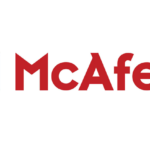GoDaddy and security firm Palo Alto Networks’ Unit 42 have taken down 15,000 subdomains dedicated to selling fake pharmaceutical products. Their two-year investigation led to them to some major cyber spam attacks on which these companies thrive.
To begin with, they discovered that affiliate spammers had compromised the accounts of hundreds of GoDaddy customers through phishing and credential stuffing, two main methods of guessing a person’s login details. Once they accessed these accounts, the hackers created several subdomains, also called ”shadow domains,” to send spam emails without the knowledge of the sites’ owners.
An unsuspecting online user then gets an email about a dodgy medical product, supposedly endorsed by a celebrity, promising quick and effective results. The URL is shortened, so no one can see where it leads. A few redirects later, the user is taken to a legitimate-looking site that leads to other pages, trying to sell that product. If they’re successful and the user provides his/her credit card details, then the affiliate marketing spammer gets a cut from that sale. And the user is charged a hefty subscription fee, which unfortunately cannot be cancelled or revoked.
To combat these cyber threats, GoDaddy advises customers to use multifactor authentication and different passwords on different devices. A statement from the company said: “GoDaddy takes the security of our network and our customers’ accounts very seriously, and we’ll continue to collaborate with the security community to identify and resolve these types of attacks.” Following their investigation, they found 15,000 fake domains and shut them all down.
There are no actual figures available on how many people actually fell for this scam or how many credit cards were compromised, still, the fact that this scam is present suggests that it is a profitable method for the scammers. There is an urgent need for individuals and organizations be constantly alert to cyber security threats, and aware of the fact that hacking is becoming more and more sophisticated and complicated these days.
(Picture courtesy: USA Today)











